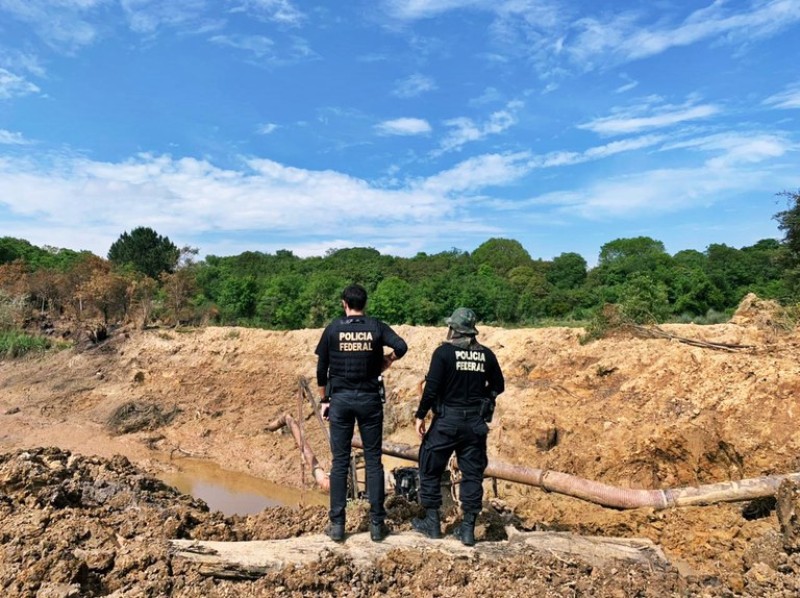The fraudulent invoices, issued between the beginning of 2020 until the end of 2022, amounted to nearly US$800 million, equivalent to about 13 tonnes of illegal gold. As this was revealed, a court authorized the seizure of over $380 million from dozens of individuals and companies believed to be involved in the scheme.
At least two Brazilian companies now under investigation allegedly exported tonnes of gold with no proper papers of provenance. The precious metal was either obtained irregularly or extracted illegally from artisanal mines in the Amazon.
However, shell companies are believed to have issued “invoices without a physical address to hide the illegal origin of the exported gold,” the Brazilian IRS said.
The country’s gold production chain lacks proper oversight, allowing miners and companies to use illegal tactics to extract and trade illegal gold. A self-declaration made by bearers or transporters regarding the origin of the gold is considered sufficient for the metal to be considered legal.
Law enforcement reviewed several transaction records and found that the companies Pena & Mello Comércio e Exportação LTDA., along with Amazônia Comércio Importação e Exportação LTDA., exported allegedly illegal gold to several companies, including Ororeal LLC in New York and Shriji Trading DMCC in Dubai, UAE.
Pena & Mello, also known as Pemex, describes itself as a Brazilian company specialized in purchasing minerals for foreign trade. “We act as a link between Brazilian producers and importers from various countries.”
Between 2016 and 2021, Ororeal imported more than 12 tonnes of gold, worth over US$500 million, from Pemex and Amazônia Comércio. while during the first half of 2022, Shriji Trading purchased more than $15 million worth of gold from Pemex.
In addition to these two companies, investigators also discovered other importers in various places, such as Hong Kong, India, Italy, Switzerland, and Turkey.
Diego de Mello and Lillian Pena, who are representatives of Pemex, were detained during the operation last week, while Marina Galo Alonso of Amazônia Comércio is under investigation but remains at large.
Pemex emphasizes on its website that it only purchases from licensed producers and offers “total security and integrity in our business.”
The export transactions of the Pemex and Amazônia Comércio companies seem to be reliable as their gold stock entries and exits match each other. However, upon analysis of the fiscal records of the gold sellers to these companies, there are indications of irregularities.
One of the detected fraudulent practices is described by the authorities as “open fracture,” which involves entries on invoices arranged alphabetically with repetitions of random name sequences in different periods.
The investigation has also identified numerous other inconsistencies in the companies’ operations, including but not limited to: the use of alphabetical listing of alleged gold sellers, financial incapacity for certain transactions, simulated invoices, temporal incompatibility in the issuance of invoices, fictitious auctions at a national public bank, and even the sale of gold by a deceased person.
In 2021, Pemex and Amazônia Comércio were subject to an operation that seized over 50 kilos of undocumented gold bars found in an aircraft at an airport in São Paulo. Despite this setback, the group continued operating and managed to sell millions of dollars worth of gold to Shriji Trading in 2022.
Police found that another company under investigation reduced its commercial activity, but still issued invoices that showed various indications of fraud. Although the volume of gold traded for export decreased, the company continued to use the same methods to acquire illegal gold.
The operation involved the participation of over 100 federal police officers, alongside five tax auditors and three analysts from the Brazilian IRS. The aim was to increase the volume of evidence in order to dismantle the whole criminal scheme; and to combat illegal mining, with a particular focus on the Amazon region.



